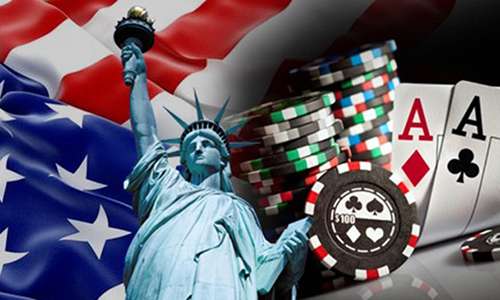Online Poker May Come Back Under Consideration in New York
As we all know, California is the golden snitch that the United States online poker world wants to catch, but also as we all know, there has been attempt after attempt after attempt to get online poker legalized and regulated there, always to no avail. Would New York be an acceptable consolation prize? Well, perhaps not for Californians or poker players in most of the rest of the country, but it certainly wouldn’t hurt. According to GamblingCompliance, there will be another push to pass an online poker bill this year.
 There have been a number of false starts in getting internet poker legalized and regulated in the Empire State in the last few years, but in 2016 (I was going to say last year, but it still feels weird – I already accidentally back-dated a check recently), the efforts took a long stride forward.
There have been a number of false starts in getting internet poker legalized and regulated in the Empire State in the last few years, but in 2016 (I was going to say last year, but it still feels weird – I already accidentally back-dated a check recently), the efforts took a long stride forward.
In June 2016, the New York State Senate passed Senator John Bonacic’s S5302, which declares that poker is a game of skill, rather than chance, and is thus legal. In the bill, a game of chance is defined as so (it is actually in ALL CAPS in the bill, but I made it easier on the eyes):
2. A contest of chance is defined as any contest, game, gaming scheme or gaming device in which the outcome depends in a material degree upon an element of chance, notwithstanding that skill of the contestants may also be a factor therein. Thus, games of chance may involve some skill, but in those games the level of skill does not determine the outcome regardless of the degree of skill employed.
Sen. Bonacic separates poker out of this with a series of paragraphs:
3. Poker in many instances has been defined as a game of skill and a New York federal court in U.S. v. Dicristina, 886 f. Supp. 2d 164, 224, Assessed that under federal law poker was predominantly a game of skill;
4. New York courts have interpreted New York law to apply a more rigorous test in identifying a “contest of chance” than is applied by most states in this nation and the courts have found that where a contest pits the skill levels of the players against each other, those games are games of skill and not games of chance. Furthermore, the courts have not limited the legislature’s ability to determine that certain forms of poker should fall outside the general definition of gambling since those games are games of skill;
The bill also adds something that should be common sense by now, that the internet is a thing and it’s ok to play poker on it:
6. The legislature further finds that as the internet has become an Integral part of society, and internet poker a major form of entertainment for many consumers, any interactive gaming enforcement and
Regulatory structure must begin from the bedrock premise that participation in a lawful and licensed gaming industry is a privilege and not a right, and that regulatory oversight is intended to safeguard the integrity of the games and participants and to ensure accountability and the public trust.
There was no “bad actor” clause in the bill, though there was one in earlier versions. Bad actor clauses are typically pushed by PokerStars’ competitors and those aligned with said competitors as a way to keep PokerStars out of the market.
The bill passed the Senate by an overwhelming margin, 53-5. A few days later, though, it never even made it to a vote in the Assembly. It was called, but then “laid aside” right away, which meant it wasn’t officially defeated, but it still never came back up for consideration last year (ok, there, I said “last year”).
Interestingly, one of the obstacles to the Assembly bill’s passage was its sponsor, Rep. J. Gary Pretlow. Pretlow was unsure that operators could properly prevent cheating – collusion, specifically – either by technological or human analysis means. While it was not unreasonable of him to want to see the technology in action rather than just taking operators’ and vendors’ words for it, he was also being way too picky in wanting technology to be able to stop all collusion, all of the time. That isn’t a reasonable goal. There are always going to be people who find ways to cheat, even in brick-and-mortar casinos or hell, in any number of pursuits in life. The goal is to stop most of them and limit the damage done by those who slip through.
According to GamblingCompliance, Pretlow met with the New Jersey Division of Gaming Enforcement, which oversees online poker in the Garden State, and now feels better about things. Thus, it sounds like he very well may look to re-introduce a poker bill this year.



















COMMENTS